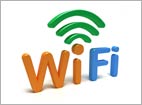The digital divide was an issue during the earlier days of telephone services, long before the term was coined, remained so through the early days of broadband, and still is a problem today.
Last week, the Federal Communications Commission said that it is seeking comments on ways to update its Lifeline program in order to bring broadband to more poor people. Yesterday, Wired discussed the effort and mentioned some providers, including Comcast, CenturyLink and Cox, that offer low-cost broadband access.
There is more news on that front than the announcement by the FCC which, of course, is limited to the United States. One of the highest-profile private sector initiatives is Project Loon from Google. The initiative, which has one of the most comically poorly chosen names in recent memory, began in 2011. The goal is to provide Internet access to remote areas via a network of balloons floating in the stratosphere.
Bloomberg offered a very interesting update on Project Loon based on information provided by Google at its I/O developers conference last week in San Francisco. Important advances have been made. Engineers have developed a way of launching the balloons more easily and with less personnel, a big step considering where the balloons are deployed. They also found a way to send signals from balloon to balloon. Enabling signals to be sent between balloons greatly reduces the need for ground stations and makes the overall success of the project more likely.
The story says that the company hopes to achieve “a few days of continuous service” in tests by the end of the year. It’s a tough project:
So far during trials in Australia, Chile, New Zealand, Brazil, and other countries, Google has succeeded only in providing intermittent access before the wind carries a balloon off. If it can overcome the remaining challenges, Cassidy is hoping to roll out the service more widely by the end of 2016 and is looking at underserved Internet markets such as Africa, Latin America, and Southeast Asia as the best places to start.
Facebook also is addressing the worldwide digital divide, with Internet.org, providing access to Facebook and a number of other sites via 2G and 3G networks. Mobile data and broadband are not necessary. So far, according to TheNextWeb, Internet.org is available in more than 10 countries, including Zambia – the first launch, last July – Tanzania, Kenya, Colombia, India, Indonesia and Malawi. Sites include AccuWeather, BBC, BabyCenter, Malaria No More and Urdupoint Cooking.
The approach is controversial, however. Critics say that it violates the spirit of net neutrality and provides Facebook inappropriate control over the online experiences of users. Facebook Chairman and CEO Mark Zuckerberg explains and defends the Internet.org project in this video.
There is nothing new under the sun, including the inequality in resources between rich and poor. Access to the Internet is essential, following only things such as food, water and shelter. Hopefully, the FCC, Facebook, Google and others will be successful in breaking down some of those barriers.
Carl Weinschenk covers telecom for IT Business Edge. He writes about wireless technology, disaster recovery/business continuity, cellular services, the Internet of Things, machine-to-machine communications and other emerging technologies and platforms. He also covers net neutrality and related regulatory issues. Weinschenk has written about the phone companies, cable operators and related companies for decades and is senior editor of Broadband Technology Report. He can be reached at [email protected] and via twitter at @DailyMusicBrk.



